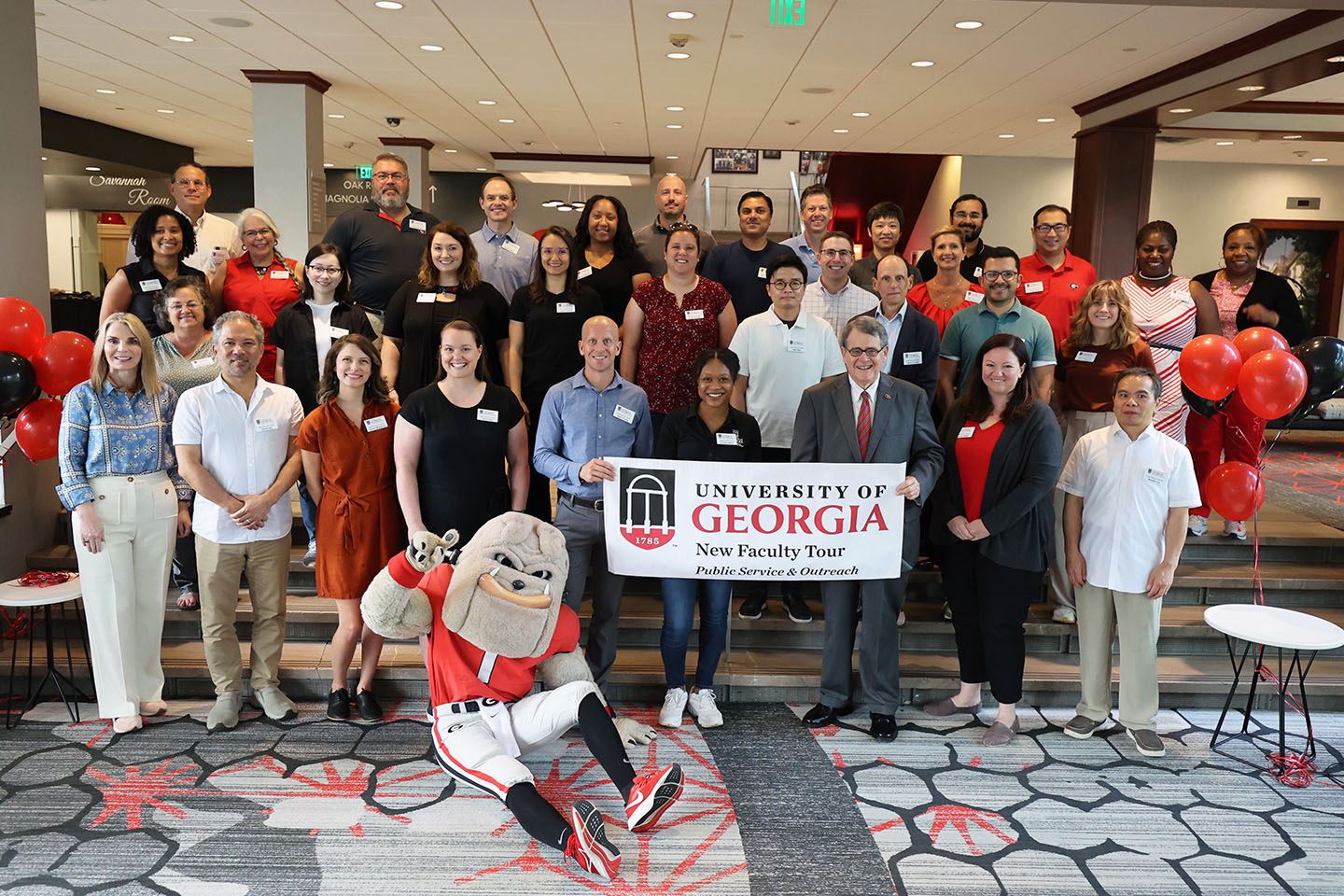A group of new University of Georgia faculty members traveled across the state last week, visiting 13 cities and passing through 40 counties from the coast to the mountains as part of the 2023 New Faculty Tour, which introduced them to the state’s economic, geographic, social and cultural diversity.
The 31 faculty members, including two deans, who made up the tour group represented 17 colleges and schools, four Public Service and Outreach units and four other departments at UGA.
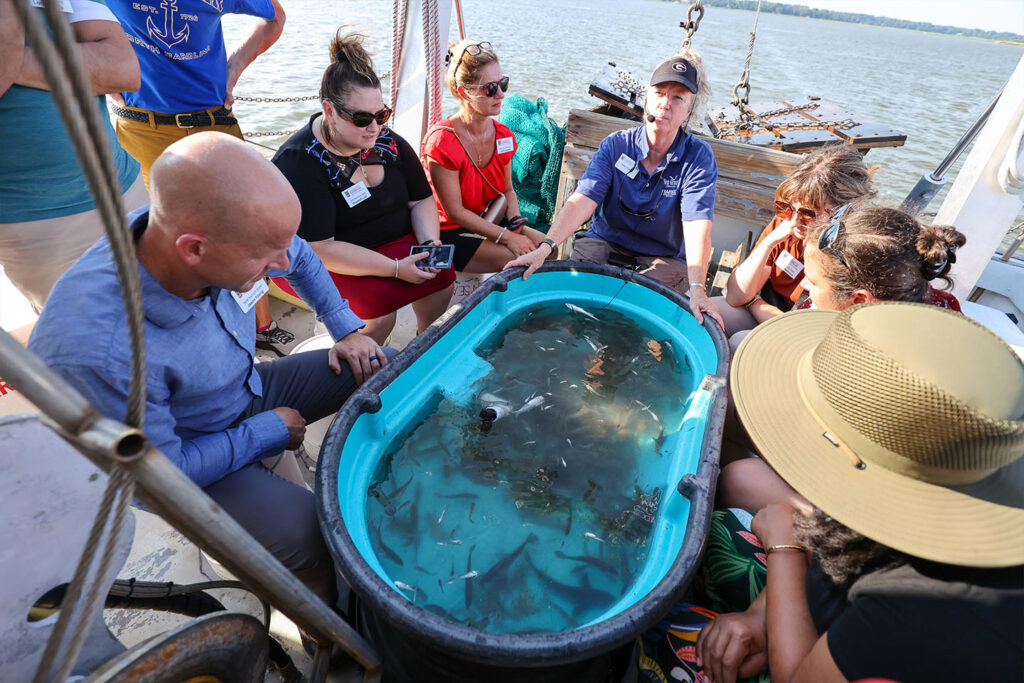
The tour left campus Aug. 7 for the Archway Partnership community of Thomson/McDuffie County on its first stop. Faculty listened to community leaders and employees talk about the broad and ongoing impact of UGA.
Additional stops on the five-day trip included UGA Marine Extension and Georgia Sea Grant at Skidaway Island in Savannah, the Georgia Ports Authority in Garden City, the Interfor timber facility in Baxley, the UGA campus in Tifton, the cities of Americus and Plains, the Martin Luther King Jr. National Historic Site and Ponce City Market in Atlanta, Yonah Mountain in Cleveland, Amicalola Falls State Park in Dawsonville, and SK Battery America in Commerce.
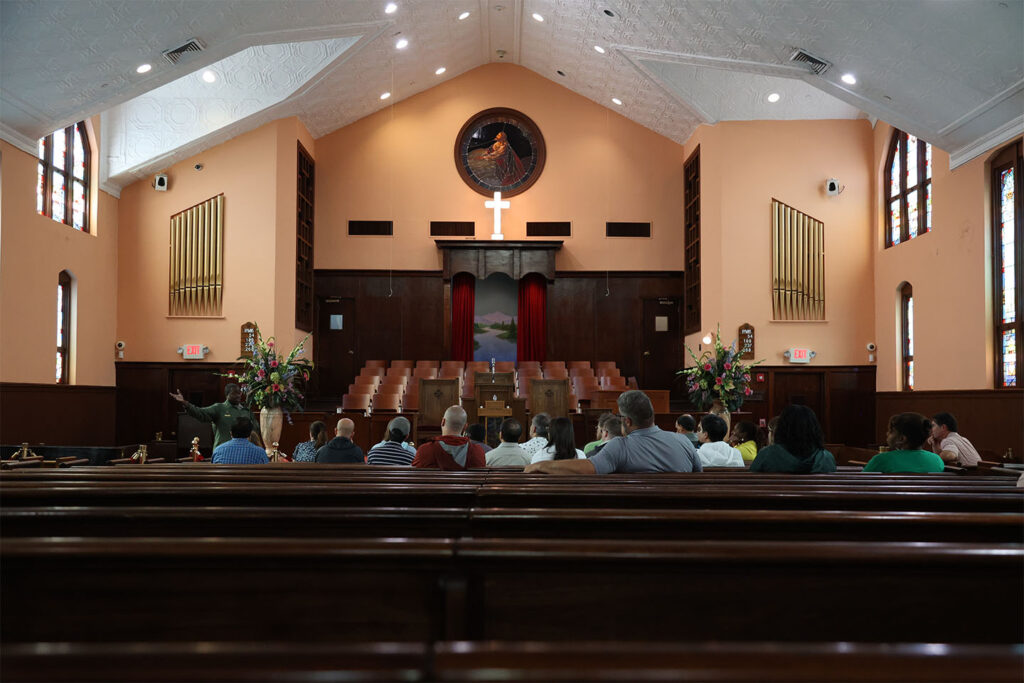
“This tour was originally planned as a biannual event, but it was so well received by the participants, as well as by communities throughout the state, that I strongly supported offering it on a yearly basis to continue the momentum of introducing our exceptional faculty to the state of Georgia,” UGA President Jere W. Morehead told the new faculty at the send-off. “I hope this tour will inspire awareness of your individual impact on the future success of Georgia and will inspire you to get involved in the outreach and extension work of UGA.”
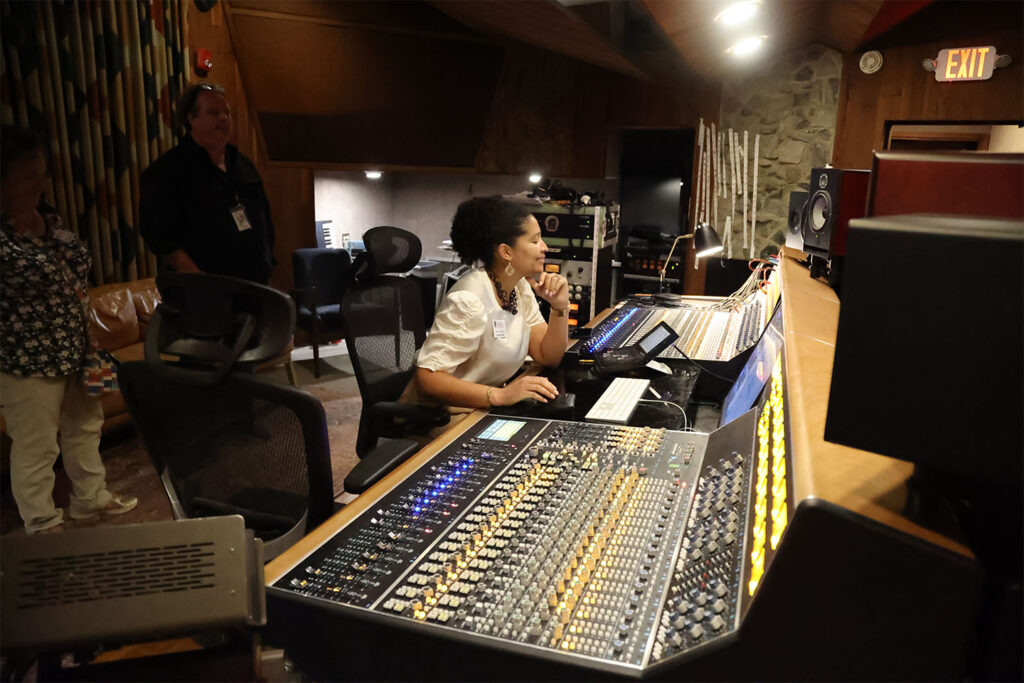
In addition to providing new faculty members a comprehensive introduction to the state of Georgia’s geography, economy, history, demographics and culture, the tour enables new faculty to network and develop professional relationships with peers across campus. New faculty also become familiar with UGA’s land-grant and sea-grant mission and with research and instructional opportunities related to Georgia. When they return to campus, faculty can build on their experiences and put their expertise to use helping Georgia communities grow and prosper.
“We encourage faculty and staff to seek out opportunities for engagement with communities in Georgia, to use their expertise and the resources of the University of Georgia to collaborate and build partnerships that benefit the citizens of this state,” said Jennifer Frum, UGA vice president for public service and outreach. “Their experience on the New Faculty Tour builds the foundation for that engagement.”
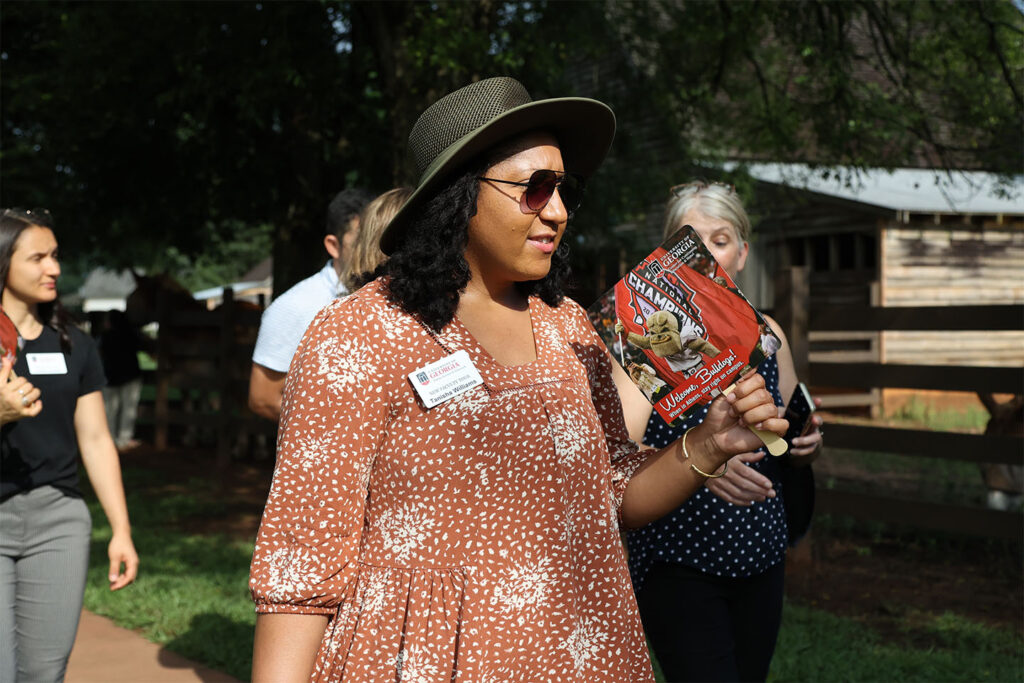
The New Faculty Tour is coordinated by the J.W. Fanning Institute for Leadership Development at UGA and is made possible by major support from the Office of the President, the Office of the Senior Vice President for Academic Affairs and Provost, and the Office of the Vice President for Public Service and Outreach. Additional sponsors include the UGA Alumni Association, the UGA Foundation and a multitude of other UGA units and supporters of the university.
Tour participant Tanisha Williams is a new faculty member in the Franklin College of Arts and Sciences’ plant biology department and director of the UGA Herbarium. She identified ways to connect her work to the state through the tour.
“I’ve learned so much about the impact that UGA has had within communities,” said Williams. “I’m looking forward to working with Public Service and Outreach to tap into the pollinator gardens around the state and to work with communities interested in utilizing and protecting their green space.”

Steve Correia, the director of neuropsychology for the College of Public Health’s Cognitive Aging Research and Education (CARE) Center, was a tour participant this year. He contributes to the center’s operations and provides clinical assessments of CARE Center patients for diagnosis and treatment planning of Alzheimer’s and other dementias.
Through his CARE Center work, Correia already has experience in rural Georgia communities but said the tour gave him a broader perspective of UGA’s reach and its commitment to serve the state’s citizens through public service and outreach work. That commitment is the primary reason he came to UGA.
“The University of Georgia has a tremendous impact on the state and its citizens,” Correia said. “As a new faculty member, you just don’t know how extensive and significant that impact is until you get out there and see it.”


